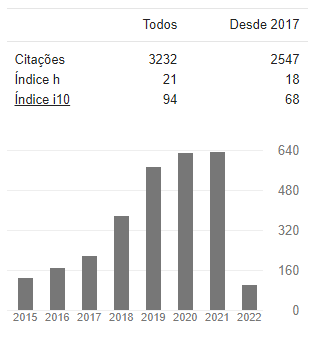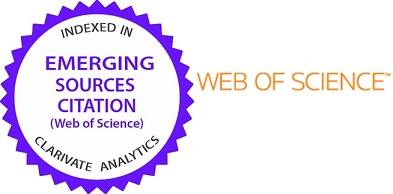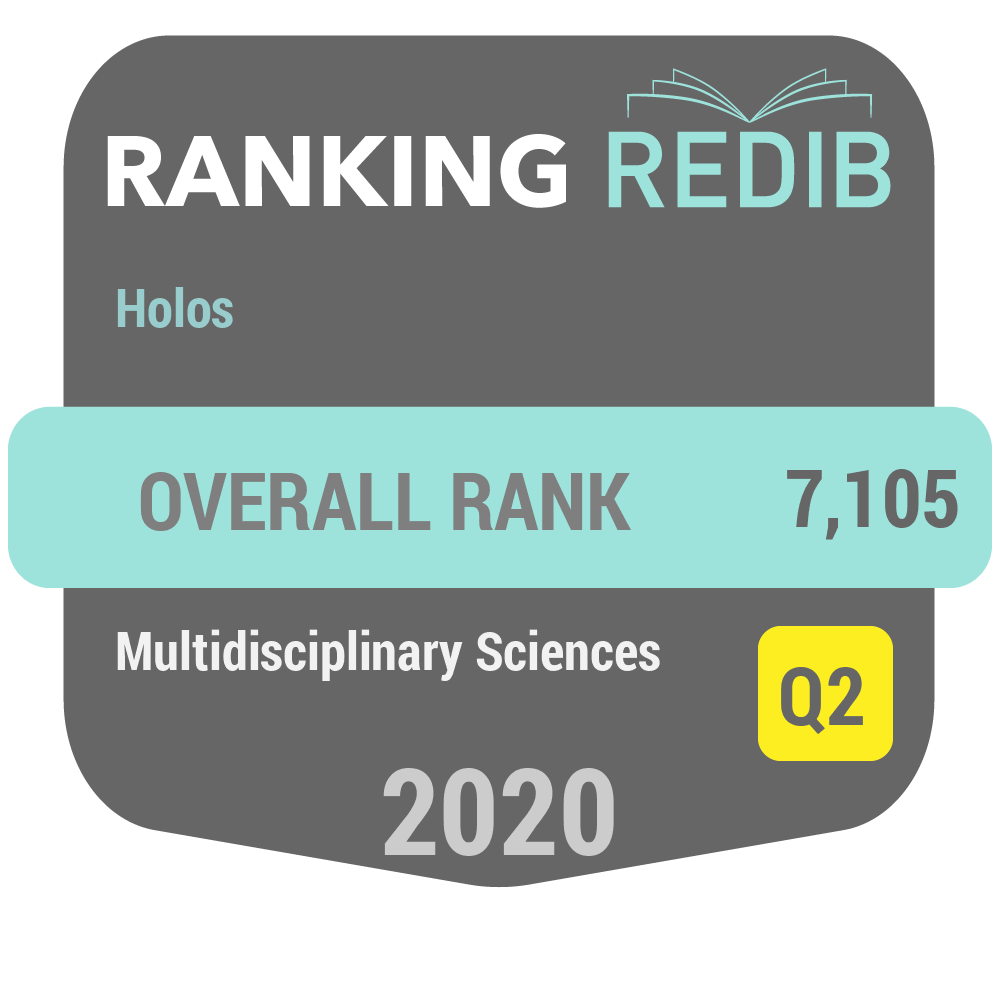Barreiras na comunicação e alternativas para auxiliar a compreensão sobre as mudanças climáticas
DOI:
https://doi.org/10.15628/holos.2018.5322Palavras-chave:
mudanças climáticas, comunicação ambiental, mídiaResumo
O entendimento das causas e riscos das mudanças climáticas e das ações para minimizar os problemas associados a essas alterações é fundamental para conscientizar a sociedade sobre a importância desse aspecto ambiental. As informações sobre as mudanças climáticas têm aumentado nos últimos anos. Porém, a comunicação enfrenta desafios em traduzir o conhecimento científico em uma linguagem não acadêmica e de fácil assimilação para a população. Além disso, a polarização e politização da ciência climática e a dificuldade em motivar a sociedade a mudar seu estilo de vida a fim de reduzir impactos ambientais são importantes questões a serem consideradas. Este trabalho apresenta os principais fatores que limitam a comunicação eficaz sobre as mudanças climáticas e mostra algumas alternativas para melhorar a comunicação entre a ciência e a sociedade, estimulando-a a agir de forma mais participativa a fim de mitigar o aquecimento global.
Downloads
Referências
Abdussamatov, H. I. (2013). Grand minimum of the total solar irradiance leads to the little ice age. Journal of Geology & Geophysics, 2(113). doi: 10.4172/2329-6755.1000113.
Akerlof, K., Rowan, K. E., Fitzgerald, D., & Cedeno, A. Y. (2012). Communication of climate projections in US media amid politicization of model science. Nature Climate Change, 2(9), 648-654. doi: 10.1038/NCLIMATE1542.
Ballantyne, A. G., Wibeck, V., Neset, T-S. (2015). Images of climate change - a pilot study of young people’s perceptions of ICT- based climate visualization. Climatic Change, 134, 73–85. doi: 10.1007/s10584-015-1533-9.
Bolsen, T., Druckman, J. N., & Cook, F. L. Citizens’, scientists’, and policy advisors’ beliefs about global warming. (2015). The ANNALS of the American Academy of Political and Social Science, 658(1), 271-295. doi: 10.1177/0002716214558393.
Bostrom, A., Böhm, G., & O’Connor, R.E. (2013). Targeting and tailoring climate change communication to audiences. WIREs Climate Change, 4(5), 447–455. doi: 10.1002/wcc.234.
BRASIL. (2011). Departamento de Educação Ambiental - Balanço de 2009/2010. Ações realizadas e em andamento. Brasília: Ministério do Meio Ambiente/Secretaria de Articulação Institucional e Cidadania Ambiental/ Departamento de Educação Ambiental.
BRASIL. (2013). Educação ambiental & Mudanças Climáticas. Diálogo necessário num mundo em transição. Série educativa. Brasília: Ministério do Meio Ambiente/Secretaria de Articulação Institucional e Cidadania Ambiental/ Departamento de Educação Ambiental. Brasília. Recuperado de www.mma.gov.br/informma/item/8266.
Brulle, R. J., Carmickael J., & Jenkins J. C. (2012). Shifting Public Opinion on Climate Change: An Empirical Assessment of Factors Influencing Concern over Climate Change in the U.S., 2002–2010. Climatic Change, 114, 169-188. doi: 10.1007/s10584-012-0403-y.
Cook, J., Nuccitelli, D., Green, S. A., Richardson, M., Winkler, B., Painting, R.,Way, R., Jacobs, P., & Skuce, A. (2013). Quantifying the consensus on anthropogenic global warming in the scientific literature. Environmental Research Letters, 8, 024024. doi:10.1088/1748-9326/8/2/024024
Corbett, J. B., & Durfee, J. L. (2004). Testing public (un) certainty of science media representations of global warming. Science Communication, 26(2), 129-151. doi: 10.1177/1075547004270234.
Farrell, J. (2016). Corporate funding and ideological polarization about climate change. Proceedings of the National Academy of Sciences, 113(1), 92-97.
Hu, S., & Chen, J. (2016). Place-based inter-generational communication on local climate improves adolescents’ perceptions and willingness to mitigate climate change. Climatic Change, 138(3), 425-238. doi:10.1007/s10584-016-1746-6.
Intergovernmental Panel on Climate Change (IPCC). (2014). Climate Change 2014: Synthesis Report. In: Pachauri, R. K., Meyer, L.A., & Core Writing Team (eds.). Contribution of Working Groups I, II and III to the Fifth Assessment Report of the Intergovernmental Panel on Climate Change. IPCC, Genebra, Suíça.
Intergovernmental Panel on Climate Change (IPCC). (2007). Summary for Policymakers. In: Solomon, S., D. Qin, M. Manning, Z. Chen, M. Marquis, K.B. Averyt, M.Tignor & H.L. Miller (eds.) Climate Change 2007: The Physical Science Basis. Contribution of Working Group I to the Fourth Assessment Report of the Intergovernmental Panel on Climate Change 2007. Inglaterra, Nova York, EUA: Cambridge University Press, Cambridge.
Jacobi, P. R., Guerra, A. F. S., Sulaiman, S. N., & Nepomuceno, T. (2011). Mudanças climáticas globais: a resposta da educação. Revista Brasileira de Educação, 16(46). doi:10.1590/S1413-24782011000100008.
Kahn, M. E., & Kotchen, M. J. (2010). Environmental concern and the business cycle: the chilling effect of recession. National Bureau of Economic Research, n.16241. doi:10.3386/w16241
Lorenzoni, I., & Pidgeon, N. F. (2006). Public views on climate change: European and USA perspectives. Climatic Change, 77, 73-95. doi: 10.1007/s10584-006-9072-z.
Marshall, G. (2014). Don’t Even Think About It: Why Our Brains Are Wired to Ignore Climate Change. New York: Bloomsbury.
Molion, L. C. B. (2008). Aquecimento global: uma visão crítica. Revista Brasileira de Climatologia, 3(4), 7-24. doi: 10.5380/abclima.v3i0.25404.
Moser, S. C. (2016). Reflections on climate change communication research and practice in the second decade of the 21st century: what more is there to say? Wiley Interdisciplinary Reviews: Climate Change, 7(3), 345-369. doi: 10.1002/wcc.403.
O'Neill, S., & Boykoff, M. (2011). The role of new media in engaging the public with climate change. In: Whitmarsh, L., O'Neill, & S., Lorenzoni, I. (Orgs.). Engaging the public with climate change: behaviour change and communication (pp. 233-251). USA: Routledge.
Posner, R. A. (2004). Catastrophe: risk and response. New York: Oxford University Press.
Sheppard, S. R. J. (2012). Visualizing climate change: a guide to visual communication of climate change and developing local solutions. New York: Routledge.
Silva, C. M. L. F. (2015). Mudanças climáticas e ambientais: contextos educacionais e históricos. Natal: Editora do IFRN.
Spence, A., Poortinga, W., & Pidgeon, N. (2012). The psychological distance of climate change. Risk Analysis, 957–972.
Stoknes, P. E. (2015). What We Think About When We Try Not to Think About Global Warming: Toward a New Psychology of Climate Action. White River Junction, Vermont, Chelsea Green Books.
Stoutenborough, J. W., Fette, R. N., Vedlitz, A., & Goldsmith, C. L. (2014). Understanding the Communication of Climate Change Risk: Climate Scientists' Perspectives of Media Sources and Policy Makers. Risk, Hazards & Crisis in Public Policy, 5(4), 365-384.
Student Switch Off (SSO). (2016) The Student Switch Off. Recuperado de www.studentswitchoff.org.
Washington, H., & Cook, J. (2011). Climate Change Denial: Heads in the Sand. London: Earthscan.
Watson, R. (org.), Carraro, C., Canziani, P., Nakicenovic, N., McCarthy, J. J., Goldemberg, J., Hisas, L. (2016). The Truth About Climate Change. Universal Ecological Fund - FED-US. Recuperado de http://feu-us.org/the-report/>.
Weber, E., & Stern, P. (2011). Public understanding of climate change in the United States. American Psychologist, 66(4), 315–328.
World Resources Institute (WRI). (2015). Climate Analysis Indicators Tool (CAIT) 2.0: WRI’s climate data explorer. Paris Contributions Map (INDCs). Recuperado de http://cait.wri.org/indc/.
Wozniak, A., Lück, J., & Wessler, H. (2015). Frames, stories, and images: the advantages of a multimodal approach in comparative media content research on climate change. Environmental Communication, 9, 469–490.
Xue, W., Hine, D. W., Marks, A. D., Phillips, W. J., Nunn, P., & Zhao, S. (2016). Combining threat and efficacy messaging to increase public engagement with climate change in Beijing, China. Climatic Change, 137, 43-55.
Zhao, X., Leiserowitz, A. A., Maibach, E. W., & Roser-Renouf, C. (2011). Attention to science/environment news positively predicts and attention to political news negatively predicts global warming risk perceptions and policy support. Journal of Communication, 61(4), 713–31.









































